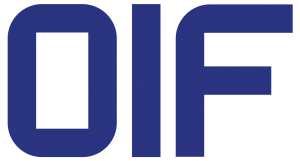OIF Launches Forward-Looking Project to Explore the Next Generation of Energy-Efficient Electrical and Optical Interfaces
Critical applications driving demand for energy-efficient links include data center networking, artificial intelligence training/machine learning and disaggregation
Fremont, Calif.— OIF, where the optical networking industry’s interoperability work gets done, today announced the launch of an innovative new project, the Energy Efficient Interfaces (EEI) Framework. The project, initiated at the Q2 2023 Technical and MA&E Committees meeting in May, will focus on studying new energy-efficient electrical and optical interfaces (which, among others, includes the next generation of low power optics, also referred to as “Linear” or “Direct Drive”). These new interfaces will be required to meet the demands of various applications such as data center networking, artificial intelligence (AI) training/machine learning (ML) and disaggregation.
“With an increasing industry-wide demand, particularly from data center operators, the focus on energy efficiency is more important than ever,” said Rob Stone, Meta Platforms and OIF Board Member. “Addressing this need head-on, the new OIF framework will explore energy-efficient interfaces for the optical interconnects of next-generation data centers that will support the performance scaling of current internet applications and enable groundbreaking AI-driven applications and immersive experiences.”
Through this project, OIF will explore and study energy-efficient links with less than fully retimed interfaces, which have the potential to unlock a multitude of benefits for diverse stakeholders. The objective is to identify critical applications and their requirements for next-generation electrical and optical links, including die-to-die, co-packaged, near-packaged and pluggable solutions. The project will conduct a thorough study to identify critical issues associated with these links and identify opportunities to pursue interoperability standards. The findings of the study will be outlined in the Framework Document, which will serve as a technical white paper for the project.
“A primary goal of this project is to identify new opportunities for interoperability standards, laying the groundwork for potential future collaborations at OIF or other standards organizations,” added Jeff Hutchins, OIF Board Member and Physical & Link Layer (PLL) Working Group Co-Packaging Vice Chair and Ranovus.
“OIF is always listening to the wants and needs our members bring forward, and this project start proposal authored by several industry leading companies directly addresses a need that exists across many IT applications,” said Nathan Tracy, OIF Co-chair of the Market Awareness and Education committee and TE Connectivity. “This one project has the potential to significantly benefit several critical industry applications.”
Additionally, Yi Tang, Cisco Systems, was recently appointed as PLL Working Group Electrical Vice Chair.
About OIF
OIF is where the optical networking industry’s interoperability work gets done. Celebrating 25 years of effecting forward change in the industry, OIF represents the dynamic ecosystem of 140+ industry leading network operators, system vendors, component vendors and test equipment vendors collaborating to develop interoperable electrical, optical and control solutions that directly impact the industry’s ecosystem and facilitate global connectivity in the open network world. Connect with OIF at @OIForum, on LinkedIn and at http://www.oiforum.com.
PR Contact:
Leah Wilkinson
Wilkinson + Associates for OIF
703-907-0010

